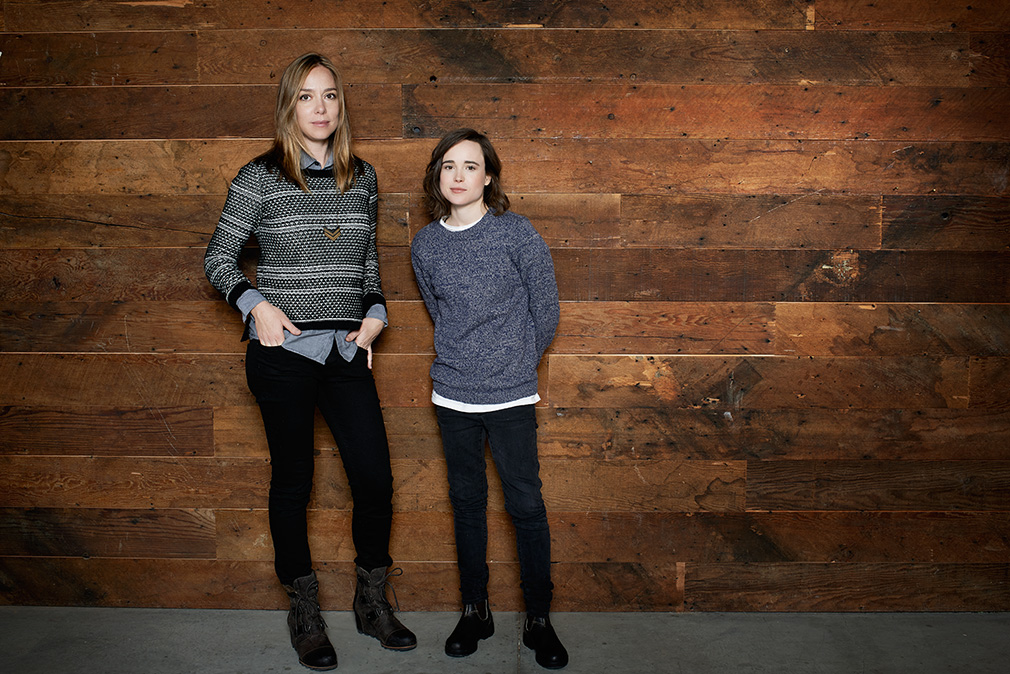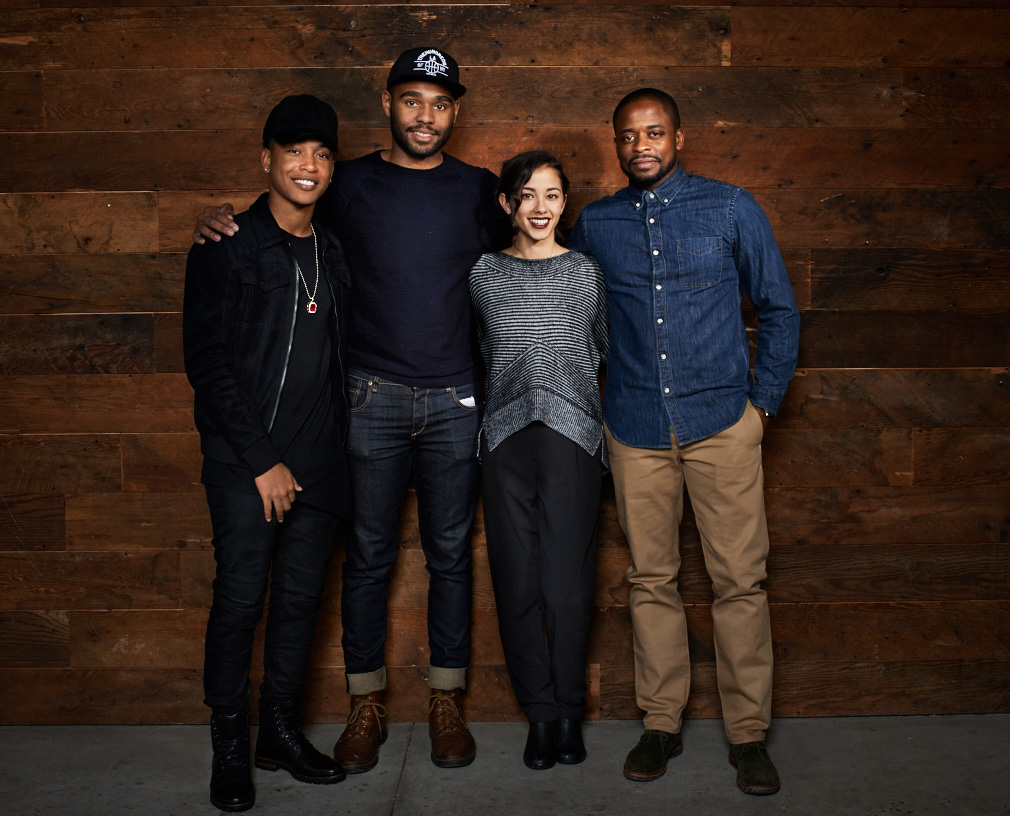By providing your information, you agree to our Terms of Use and our Privacy Policy. We use vendors that may also process your information to help provide our services. This site is protected by reCAPTCHA Enterprise and the Google Privacy Policy and Terms of Service apply.
Attention, Filmmakers: If You Want to Get Your Film Into Sundance, Here Are Some Tips from this Year’s Class


Chance are, the unleashing of over 100 new independent projects at this year’s Sundance Film Festival has lit a fire under aspiring filmmakers. But before you start laying plans for Sundance 2017 and beyond, here’s some advice from the directors who just lived their Park City dreams.
“The biggest piece of advice I can offer filmmakers, especially directors, is to maximize the use of prep time. So many of the challenges directors face during principle can be mitigated during prep. Make prep a communal and collaborative effort by insuring every single person involved knows exactly what is expected of them AND knows how they will approach and meet those expectations.” -Nate Parker, “The Birth of a Nation”
“Be as prepared as possible. Pre-production is the only time when you won’t feel like a clock is ticking. Once principle starts, things will get nuts and you will feel like you don’t have one second to think. But with that being said, be ready to change course at any given moment if you are sinking in a time suck. Don’t spend all day trying to get the perfect shot and sacrifice proper coverage. Once you get into editing, you will suddenly realize that time wasting shot hurt the film more than helped it.” -Rob Zombie, “31”

“Don’t be afraid of your actors, let them bring everything they can to the character and work from there.” -Rebecca Daly, “Mammal”
“Concentrate on acting. That starts with having a good casting director. I think most first time filmmakers make-it-or-break-it on having a few good actors in their film. If you don’t have good actors, you can direct until you are blue in the face and it probably won’t matter very much. We all want fancy shots, but when you have to choose between elaborate set-ups and time for an actor to work I choose the latter. Regardless of how good a concept is or how seductive the imagery is, if the acting isn’t good, the movie isn’t good. -Andrew Neel, “Goat”

“If you’re doing something that feels scary, then that’s probably a good thing. The world doesn’t need any more safe films. If you wake up in terror with an unshakable feeling that you’re certain to fail miserably, then A) that means you actually care deeply and so you have a puncher’s chance of pulling it all together and B) you might actually be doing something innovative or interesting. Watch movies, love cinema, do new things and keep pushing. And don’t be an asshole, because you need all the help you can get.” -Robert Greene, “Kate Plays Christine”
 “Make sure you have a good time. Making movies is stressful. And they don’t tell you that until you’re in the thick of it. The more fun you can have the better. If you can, make movies with your friends.” -Nicolas Pesce, “The Eyes Of My Mother”
“Make sure you have a good time. Making movies is stressful. And they don’t tell you that until you’re in the thick of it. The more fun you can have the better. If you can, make movies with your friends.” -Nicolas Pesce, “The Eyes Of My Mother”
“Just don’t think about how much work this is going to be, and try not to find out either. If anyone actually knew in advance how hard it is, nobody sane would ever do it. Also, don’t listen to ‘industry pros’ who insist you need to color inside the lines. For mentoring and connections, you need to find the ‘industry pros’ that are still excited about discovering new voices and new modes of filmmaking; they’re totally out there and they will be your biggest allies. But more important than either of those two things is to cultivate your own community of peers and collaborators, friends who will help you aggregate enthusiasms and cultivate your worldview and watch your terrible rough cuts and hold a camera for you every once in a while.” -Penny Lane, “NUTS!”
“I see a lot of filmmakers doing multiple jobs with little or no pay to get their movies made. We all do that for these labors of love, but it’s not a realistic or long-term business model. To expect passionate, dedicated and talented filmmakers to work for nothing is an unfair and unhelpful assumption. First-time filmmakers should remember that. It’s also helpful for people to know that even the most successful documentary filmmakers still struggle. There are very few people I know, if any, who just go off and make their film in a cave in the dark and go on to have a successful exhibition without significant help. Reach out to other filmmakers for advice, we’re a really collaborative community.” -Dawn Porter, “Trapped”
 “Make sure you know what you’re doing, you know what you want, and you’ve had the practice. This is important, because you may only get one shot. Meticulously shot list and never, ever, compromise your vision. Take advice or feedback that enhances your vision, but never forget that, for better to for worse, a film is meant to serve a singular vision, and everyone involved must serve that vision. If it bombs, you’ll get all the blame, and if it is a hit, you’ll get a ton of the credit. Finish your first feature knowing you did everything you could to make exactly the film you wanted to make. And then, if it’s a flop, you’ll still have no regrets.” -JT Mollner, “Outlaws and Angels”
“Make sure you know what you’re doing, you know what you want, and you’ve had the practice. This is important, because you may only get one shot. Meticulously shot list and never, ever, compromise your vision. Take advice or feedback that enhances your vision, but never forget that, for better to for worse, a film is meant to serve a singular vision, and everyone involved must serve that vision. If it bombs, you’ll get all the blame, and if it is a hit, you’ll get a ton of the credit. Finish your first feature knowing you did everything you could to make exactly the film you wanted to make. And then, if it’s a flop, you’ll still have no regrets.” -JT Mollner, “Outlaws and Angels”

“I once had an art teacher who said that ‘original thought is dead.’ At the time I loved that because he didn’t make us footnote any of our papers, but now I see it as a comforting thought to release myself from the pressure of creating something completely unique all the time. So my advice would be to look at the work you admire and try your best to emulate it until you figure out your own preferences and techniques for storytelling.” –Clay Tweel, “Gleason”
“The advice we would give is that as an indie filmmaker you have to be prepared to re-invent yourself over and over again. One success doesn’t make you immune to the painful process of rising again from the ashes. And embracing that fact — if one can do so without hindsight! — could sidestep a lot of pain.” -Keith Fulton and Lou Pepe, “The Bad Kids”


“Be acutely aware of the things that are not important, or are pretending to be inconsequential. Because these are the very things that will decide that nuances of your film. The film is made by its shadows.”-Q, “Brahman Naman”

“Don’t stress about obeying the law. The illegal moments usually lead to the best images.” -Matt Johnson, “Operation Avalanche”
 “No one can make this film but you. You have to feel the urgency and the drive that you and only you must make this unique expression. And luckily the means of production are incredibly accessible right now in a way like never before. You can make a movie on your iPhone, BUT you wouldn’t walk into the Boston Philharmonic and ask to be first chair violin on your first day working with the instrument. That would be ludicrous. It is the same with film, with storytelling. It is a decades-long process at least until you get to be any good at it. So work with those two things in mind. Make as much work as you can as fast as you can right now. But know that it is a lifetime of dedication to master what you are doing.” -Josh Fox, “How to Let Go of the World and Love All The Things Climate Can’t Change”
“No one can make this film but you. You have to feel the urgency and the drive that you and only you must make this unique expression. And luckily the means of production are incredibly accessible right now in a way like never before. You can make a movie on your iPhone, BUT you wouldn’t walk into the Boston Philharmonic and ask to be first chair violin on your first day working with the instrument. That would be ludicrous. It is the same with film, with storytelling. It is a decades-long process at least until you get to be any good at it. So work with those two things in mind. Make as much work as you can as fast as you can right now. But know that it is a lifetime of dedication to master what you are doing.” -Josh Fox, “How to Let Go of the World and Love All The Things Climate Can’t Change”
“You have to be diligent and persistent. Many people will tell you ‘no’ but it just takes one ‘yes’ for your first film to gain momentum. Believe that you will get that one ‘yes.’ At the same time learn your craft and expand your knowledge of cinema.” -So Yong Kim, “Lovesong”
READ MORE: Sundance Documentaries Climb The Mountain (Sometimes Literally)
By providing your information, you agree to our Terms of Use and our Privacy Policy. We use vendors that may also process your information to help provide our services. This site is protected by reCAPTCHA Enterprise and the Google Privacy Policy and Terms of Service apply.















